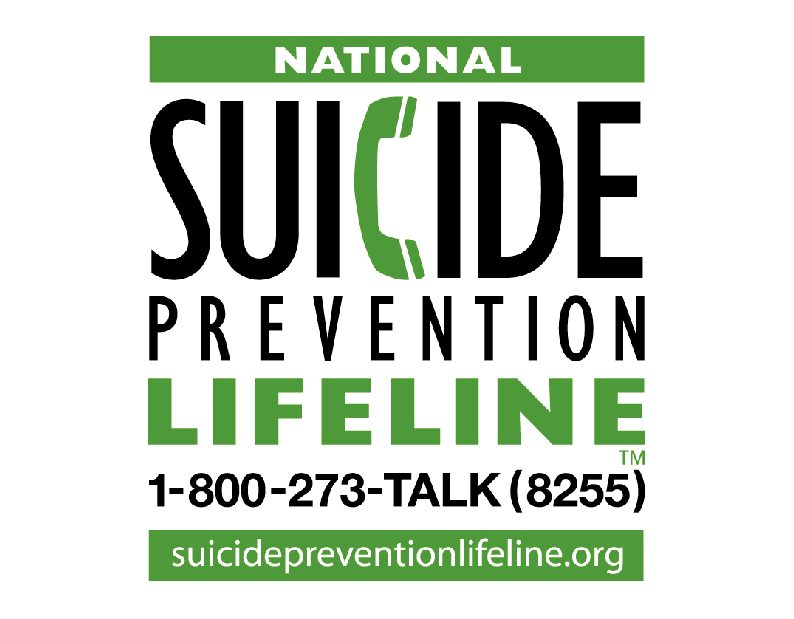By Lani Hansen, Senior Reporter
OKMULGEE, Oklahoma– The month of September is recognized as National Suicide Prevention Month. Muscogee (Creek) Nation’s Native Connection grants program primary focus is on suicide prevention and substance prevention amongst Native’s 10 to 24.
According to Project Director for Native Connections Tyler Stone, suicide has many emotions that comes along with it like anxiety, stress, depression and loneliness. People who battle suicidal thoughts are those who do not have any protective factors in life, like being surrounded by positive people, living in a safe environmental home and work places.
“Those are some of the protective factors we have and some hold onto culture, sports and that senses in community,” Stone said. “Some people may not have that for various reasons and could lead to suicide.”
Stone added suicide is the 10th leading cause of death in the country. There has been a 27 percent increase in suicide since 2000. The increase may have been caused due to a war happening after the year 2000, with veterans having the highest suicide rates. Suicide is also the 8th leading cause of death for Native Americans.
“Native people are impacted by suicide more than the U.S. population,” Stone said. “It’s the fifth leading cause of death for Indian males, and second cause of death for Native Americans 10 to 34.”
The grant program focuses more on the 10 to 24 age group, because they make up 64 percent of suicides that happen in Indian Territory. The stats are not focused on Oklahoma but other states that have tribal representation.
With COVID-19 pandemic going on, Stone believes this is making it harder for those who battle any suicidal thoughts or depression. He thinks there are fear of the unknown, and that there is factors of what the pandemic has done like economic factors of people losing their jobs.
“I think it’s harder for some people if they are by themselves, if they don’t have someone they can talk too, if they lost their jobs or if they lost someone to COVID-19,” Stone said. “So I think it’s been tougher. We’ve seen an increase of people texting the hotline.”
Right now it is hard for the grant program to track down those who are suffering. They are trying to collaborate with outside agencies to get a better understanding of the impact of suicide through local law enforcements and funeral homes.
Stone added people can help prevent suicide by reaching out to someone they know who is struggling and ask, “how are they doing?” Some may also ask a deeper question like, “are you feeling suicidal?” It might be a scary question to ask, but also it could lead into a conversation and help the person feel better.
“We offer suicide prevention trainings that usually takes 45 minutes to an hour, where we take it step-by-step into asking questions,” Stone said. “We start with questions like, ‘are you feeling suicidal’ and if they are then say, let me get the help you need. Most of us aren’t experts in handling suicide crisis.”
People who want to raise awareness for suicide prevention can easily share resources such as the crisis text line or the suicide prevention lifeline number. Other types of way to help raise awareness is attending events that talk about preventing suicide, and social media.
If you or somebody you know are going through a dark time, MCN Behavioral Health has a few programs. There is a grant called Native Connections, Meth and Suicide Prevention Initiative (MSPI) grant, Garrett Lee Smith (GLS), SBIRT and MCN Behavioral Health itself will help people.
Stone added, “Suicide is everyone’s business, and it takes all of us to be aware of people who are struggling and to have those hard conversations. It’ll be scary at first but letting people know that you are on their side and you’re going to help them through whatever they are going through, is going to make a difference.”
If you or somebody you know is feeling suicidal call the National Suicide Prevention lifeline at 1-800-273-8255, or text the word ‘Creek’ to 741-741. If you are enrolled in an affiliated tribe and want MCN Native Connection grant services, contact them at (918) 758-1910.






For some of us it is too late. I lost my son on November 30, 2019. He chose to leave this Earthly realm – I think alot of it had to do with a recent breakup & being a single father to a newborn (6 mo. old). He may have suffered from male post-partum depression. There are other factors that played a role but I won’t go into that here. I would love to learn more about how to prevent suicide or at least have his leaving not go unnoticed. So many of our people suffer from mental health issues, alcohol & drug abuse. Prayers for all those who suffer alone in their thoughts. We must be diligent in reaching out with awareness of this tragic situation & the effect it has on those left behind. Mi’iw/That is all.